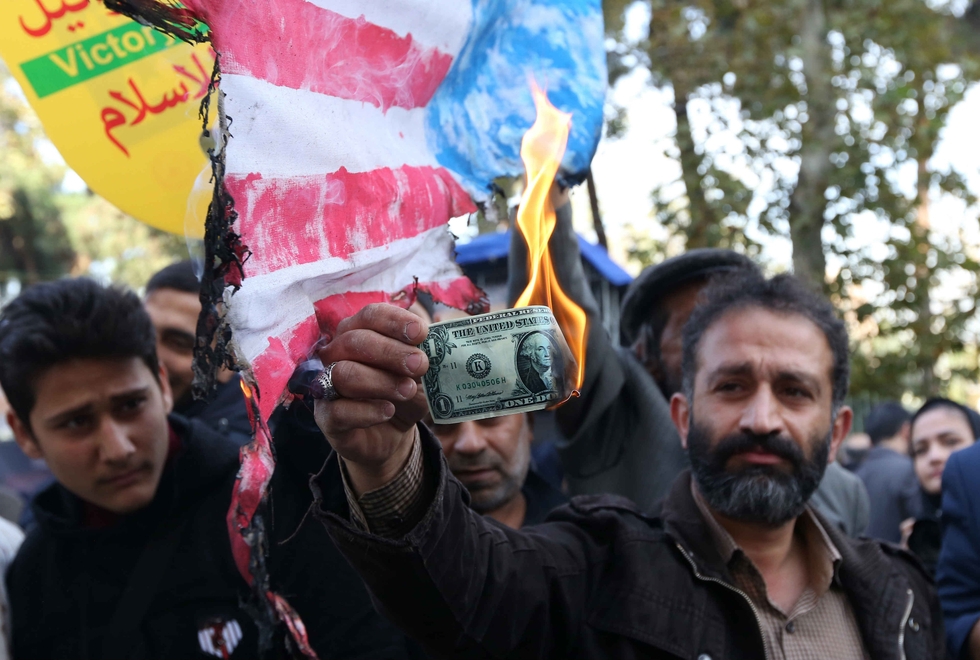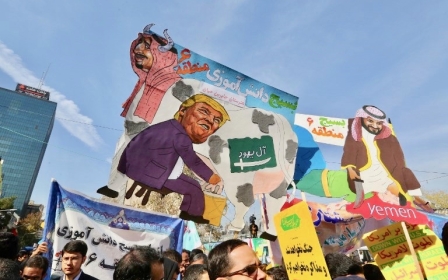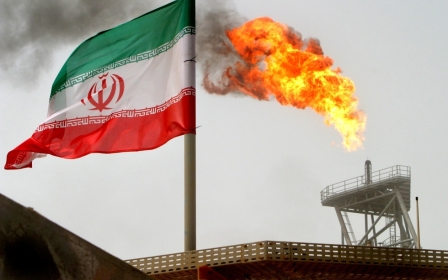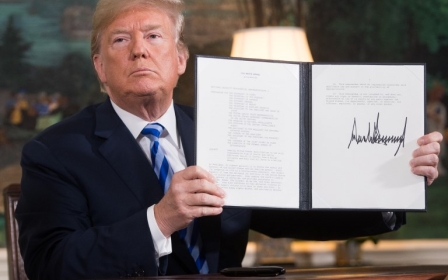Iran sanctions: Defiant rhetoric and military drills greet new US penalties

Iran responded to the United States’ imposition of tough new sanctions on Monday with air defence drills and confident and confrontational rhetoric.
"We are in the war situation," President Hassan Rouhani said in a television address as the sanctions snapped into place.
"We are in the economic war situation. We are confronting a bullying enemy. We have to stand to win."
The US sanctions herald the end of Washington’s involvement in the landmark 2015 deal signed between the countries and other world powers, which was designed to curb Iran’s nuclear ambitions.
They end all the benefits that Tehran won from the US in that agreement, and particularly target the Iranian oil industry, an important crutch for the country’s moribund economy.
I announce that we will proudly bypass your illegal, unjust sanctions because it's against international regulations
- Iranian President Hassan Rouhani
However Rouhani promised to “proudly bypass” the sanctions, which also target Iran’s financial sector.
"I announce that we will proudly bypass your illegal, unjust sanctions because it's against international regulations," he said.
Reneging on the 2015 deal was a cornerstone of US President Donald Trump’s election campaign.
He has taken a confrontational approach to Iran since taking office, and Washington has described Monday’s new tranche of penalties as "the toughest sanctions ever”.
“I don't think that in the history of America, someone has entered the White House who is so against law and international conventions," Rouhani said.
Moribund economy
Already Iran’s oil output has fallen to around 1 million barrels per day since May, though US Secretary of State Mike Pompeo has said he wants to cut that number to zero.
"Watch what we do. Watch as we've already taken more crude oil off the market than any time in previous history," he said on Sunday.
Washington has, however, already lent some countries with economic ties to Iran some leeway.
Eight countries, including Turkey, India and Japan, have been given temporary exemptions by the US, so they can keep purchasing oil and see stability in their economies and the global oil supply.
Conversely, the stability of the Iranian economy is firmly in Washington’s sights.
Since Trump officially pulled out of the nuclear deal in May, Iran’s already struggling economy has entered a nosedive.
The rial now trades at 145,000 to the dollar, down from 40,500 a year ago.
Prices have skyrocketed as a result, leading to bouts of civil unrest and power shortages both within Iran and Iraq next door, which is heavily reliant on its neighbour.
Iraq was widely believed to have been one of the eight countries given exemptions by Washington. However the official list issued on Monday afternoon revealed that not to be the case, asking a number of awkward questions of Iran's neighbour.
Economic war
Officially, Washington insists that the sanctions are a response to what it calls Iran’s malign influence in the Middle East.
Nuclear inspectors have regularly said Tehran has abided by the nuclear deal, which other signatories Britain, France, Germany, China and Russia have promised to uphold.
But the US says that the pact failed to address issues such as Iran’s support of armed groups in countries such as Yemen and Lebanon, or its development of long-range ballistic missiles.
Washington says the new sanctions are designed to pressure Tehran into changing tack.
However, Trump’s national security advisor, John Bolton, and personal lawyer, Rudy Giuliani, have publicly supported toppling the Iranian government and leadership.
Bolton on Monday said the latest sanctions were only the beginning.
"We're going to have sanctions that even go beyond this. We're not simply going to be content with the level of sanctions that existed under [former US President Barack] Obama in 2015," Bolton said in an interview with Fox, according to a transcript. "More are coming."
Close Trump ally and Iranian foe Israel, which has repeatedly struck Iran’s forces in Syria, has thanked the US for the new sanctions.
“President Trump's bold decision is the sea-change the Middle East has been waiting for," Israeli Defence Minister Avigdor Lieberman said in a statement.
"In a single move, the United States is dealing a critical blow to Iran's entrenchment in Syria, Lebanon, Gaza, Iraq and Yemen. President Trump, you've done it again! Thank you."
Iranian state TV on Monday aired footage of anti-aircraft batteries and air defence systems carrying out drills in Iran’s north.
The military manoeuvres are set to last two days and apparently include the army and elite Revolutionary Guard.
Middle East Eye propose une couverture et une analyse indépendantes et incomparables du Moyen-Orient, de l’Afrique du Nord et d’autres régions du monde. Pour en savoir plus sur la reprise de ce contenu et les frais qui s’appliquent, veuillez remplir ce formulaire [en anglais]. Pour en savoir plus sur MEE, cliquez ici [en anglais].




